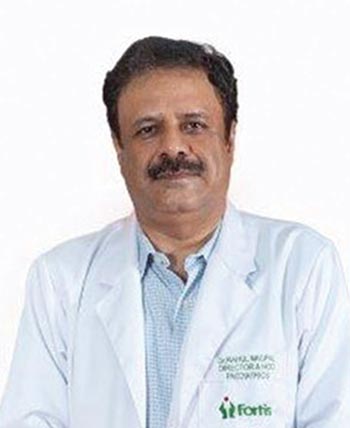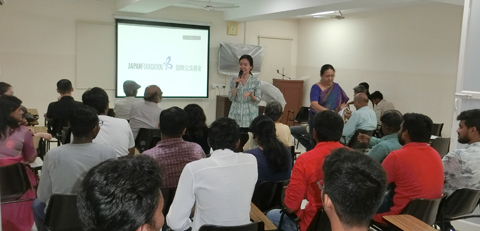Kids ill very often? VITAMIN D is what may be lacking suggests Dr. Rahul Nagpal
Posted on: 29/Mar/2018 4:57:12 PM

Dr Rahul Nagpal emphasizes on the fact that �children with low levels of vitamin D may suffer from many bone diseases (commonly rickets) in which there is poor bone formation and this results in reduced growth of the child, and increased risk of fractures.�He also reminds us that Vitamin D is not only restricted to maintaining adequate calcium and phosphorus levels for bone health in the body, but also plays other vital roles. He further adds that children with low levels of vitamin D have greater risk of cardiovascular diseases such as hypertension or high blood pressure. Vitamin D is also associated with prevention of orthostatic intolerance. When a child stands up from a sitting or lying down position, it is required that the blood flow to several important areas of their body remains adequate. This ensures that their blood pressure, and hence blood flow to the brain doesn`t get affected. This condition is called orthostatic intolerance 1 and Vitamin D is associated with maintaining cardiovascular functions in children and any significant drop in the level of Vitamin D can lead to changes in the heart rate and pulse as the position of the child changes.
Another disease, Dr. Rahul Nagpal talks about is known as Kawasaki disease which tends to occur more in those children living in developed countries that are deficient in Vitamin D. In these children with low levels of Vitamin D, inflammation of their blood vessels occurs. Vitamin D helps by bringing about an anti-inflammatory reaction,2 and therefore reduces the inflammatory action and minimizes the effects of the disease.
Dr. Rahul Nagpal also mentioned that children with long term kidney diseases are known to have Vitamin D deficiency due to which their bone growth rates decreases. Deficiency of vitamin D can also lead to damage of lung tissues in children and increase the risk of various lung infections. Bronchial asthma is another lung disease seen in children that are deficientin Vitamin D.3
Supplementation of Vitamin D
Vitamin D deficiency in children can lead to many diseases and it is the one of the most common problems that occurs in children. Dr. Rahul Nagpal suggests an adequate amount of vitamin D is required for the proper and healthy growth of children and Vitamin D supplements can be given as regular dietary supplements to children to make them free of any diseases or symptoms associated with deficiency of Vitamin D. Dr. Rahul Nagpal suggests that by giving Vitamin D supplements such as cholecalciferol, positive results in children can be possible.For the treatment of rickets, high dose of Vitamin D can be taken initially for 2-3 months.







